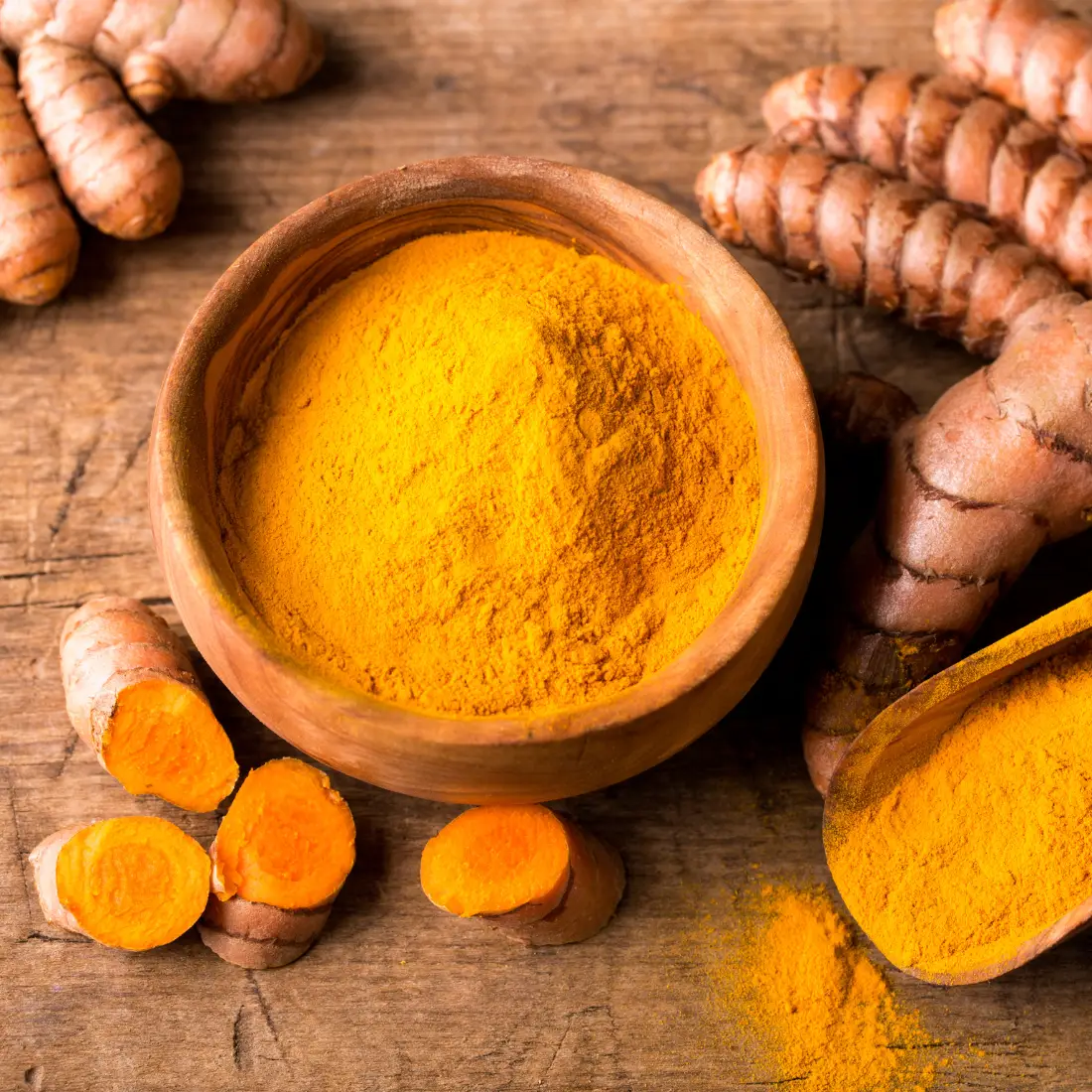Introduction: Can Turmeric Help with Concussion Recovery?
Concussions are a serious form of brain injury, leading to symptoms such as headaches, dizziness, and cognitive impairments. While traditional treatments are essential for recovery, many people are turning to natural remedies to support healing. One such remedy gaining attention is turmeric, a bright yellow spice that has long been celebrated for its medicinal properties.
The active compound in turmeric, curcumin, has anti-inflammatory and neuroprotective properties that may help reduce brain inflammation, improve circulation, and protect neurons following a concussion. But how much turmeric should you take for concussion recovery? In this article, we’ll explore the science behind turmeric’s benefits for brain health and provide guidance on the right dosage to aid recovery.
What Is Turmeric and How Does It Work?
Turmeric, derived from the Curcuma longa plant, is a staple in many cuisines, especially in Indian food. The compound that gives turmeric its golden color and health benefits is curcumin. Research has shown that curcumin has powerful anti-inflammatory, antioxidant, and neuroprotective effects, making it potentially beneficial for anyone recovering from a concussion.
When the brain is injured, as in the case of a concussion, it often becomes inflamed. This inflammation can make symptoms worse and delay recovery. Turmeric can help by reducing this inflammation and preventing further brain damage caused by oxidative stress (a process that damages cells and tissues in the brain).
How Does Turmeric Help with Concussions?
A concussion disrupts normal brain function, causing inflammation and oxidative damage that can exacerbate symptoms like headaches, memory problems, and mood swings. Here’s how turmeric’s active ingredient, curcumin, can be beneficial:
- Reducing Inflammation:
One of the key benefits of turmeric is its ability to reduce inflammation. After a concussion, the brain becomes inflamed, which can lead to further neuronal damage. Curcumin helps lower levels of inflammatory markers and can reduce swelling, potentially speeding up recovery. - Neuroprotection:
Turmeric may protect the brain from additional damage after a concussion. Curcumin has been shown to shield brain cells from oxidative stress, a condition where free radicals cause damage to the cells, which can further impair brain function. - Enhanced Brain Function:
Curcumin may also support cognitive function. Studies have suggested that it can improve memory and reduce symptoms of brain fog. This could be especially helpful for people who have difficulty concentrating or remembering things following a concussion. - Improved Circulation:
Turmeric promotes blood flow, which is crucial for nourishing brain cells with the oxygen and nutrients they need to heal. Better circulation can potentially speed up the recovery process by delivering essential nutrients to the brain more efficiently.
What’s the Right Dosage of Turmeric for Concussion?
If you’re considering using turmeric as part of your concussion recovery plan, you might be wondering how much you should take. While there’s no specific dosage established for concussion treatment, research and traditional usage can provide some guidance.
1. Turmeric Supplements (Curcumin Capsules)
If you’re using a curcumin supplement, most studies suggest taking 500 mg to 1,000 mg per day. This dosage is generally considered safe for most individuals and offers anti-inflammatory and neuroprotective effects. Keep in mind that curcumin is not easily absorbed by the body, so it’s best to look for supplements that include black pepper extract (piperine), which increases the absorption of curcumin by up to 2,000%.
2. Turmeric Powder (Whole Root)
If you prefer to use turmeric powder, you can easily incorporate it into your diet. For concussion recovery, 1 to 3 grams (about 1/2 to 1 teaspoon) of turmeric powder daily is typically recommended. You can add this to smoothies, teas, or cooking.
3. Turmeric Tea or Golden Milk
Turmeric can also be consumed as a golden milk or turmeric tea. In these drinks, typically, 1/2 to 1 teaspoon of turmeric is added to the liquid. You can also include a pinch of black pepper to improve curcumin absorption. Drinking turmeric tea regularly may help manage inflammation while offering a calming, anti-inflammatory effect.
4. Consult Your Healthcare Provider
Before adding any new supplement or herb to your recovery plan, it’s important to consult with your doctor or healthcare provider. They can help guide you on the proper dosage based on your individual health needs and potential interactions with any other medications or treatments.
Are There Any Side Effects or Risks?
Turmeric is typically taken into consideration secure for maximum human beings whilst fed on in moderation. However, there are a few things to be aware of:
- Digestive Issues: Some people may experience stomach upset or mild digestive issues when taking turmeric, especially in larger amounts.
- Blood Thinning: Turmeric can act as a mild blood thinner, so individuals taking anticoagulant medications (like warfarin) should consult their doctor before using turmeric regularly.
- Allergic Reactions: Though rare, some people may have an allergic reaction to turmeric. If you notice any signs of rash, hives, or difficulty breathing, stop use immediately and seek medical advice.
Conclusion: Can Turmeric Help with Concussion Recovery?
The evidence suggests that turmeric, particularly its active compound curcumin, may offer valuable support for those recovering from a concussion. By reducing inflammation, promoting neuroprotection, and supporting cognitive function, turmeric can potentially help speed up recovery and improve overall brain health.
While the ideal dosage can vary, most people will benefit from 500 to 1,000 mg of curcumin per day or 1 to 3 grams of turmeric powder. However, it’s essential to consult with your healthcare provider before incorporating turmeric into your recovery plan, especially if you’re already taking other medications.
By combining turmeric with proper medical care, rest, and rehabilitation, you may be giving your brain the best chance for a full and speedy recovery.






